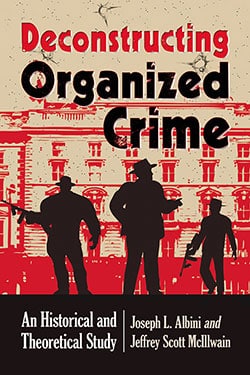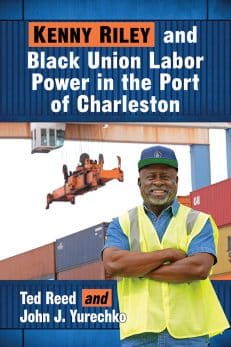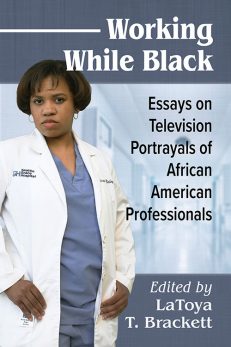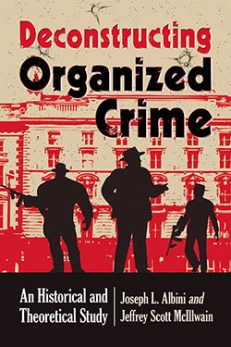Deconstructing Organized Crime
An Historical and Theoretical Study
$29.95
In stock
About the Book
What is organized crime? There have been many answers over the decades from scholars, governments, the media, pop culture and criminals themselves. These answers cumulatively created a “Mafia Mystique” that dominated discourse until after the Cold War, when transnational organized crime emerged as a pronounced, if nebulous, threat to global security and stability.
The authors focus both on the American experience that dominated organized crime scholarship in the second half of the 20th century and on the more recent global scene. Case studies show that organized crime is best understood not as a series of famous gangsters and events but as a structure of everyday life formed by numerous political, social, economic and anthropological variables. Instructors considering this book for use in a course may request an examination copy here.
About the Author(s)
Bibliographic Details
Joseph L. Albini and Jeffrey Scott McIllwain
Format: softcover (6 x 9)
Pages: 217
Bibliographic Info: bibliography, index
Copyright Date: 2012
pISBN: 978-0-7864-6580-4
eISBN: 978-0-7864-9299-2
Imprint: McFarland
Table of Contents
Preface 1
Introduction 4
1. The Mystique of the Mafia 7
2. The Mafia Belongs to Sicily 23
3. Searching for “Our Thing” 47
4. Revision 67
5. Organizing Crime 83
6. Survival of the Fittest: From Russia to the Original Sin City 120
7. Globalization and Organized Criminals 148
8. The Organized Crime Matrix: A Transnational System of Social Networks of Organized Criminal Activity 179
Works Cited 191
Index 201
Book Reviews & Awards
- “an informative overview of organized crime…a detailed historical examination of the origins…rigorous and highly readable, this is an important contribution to the field of criminology. Highly recommended. All levels and libraries”—Choice
- “A fascinating historical look at the mythology and reality of organized crime past and present. A scholarly inquiry into the ways public perception influences crime policy and law enforcement.”—Jay S. Albanese, Virginia Commonwealth University and former Chief of the International Center, National Institute of Justice
- “A criminological tour-de-force by two dedicated and respected scholars that bridges the late 20th century with the 21st century in describing the intellectual effort to explain the changing nature of organized crime.”—Frank Hagan, Mercyhurst College





